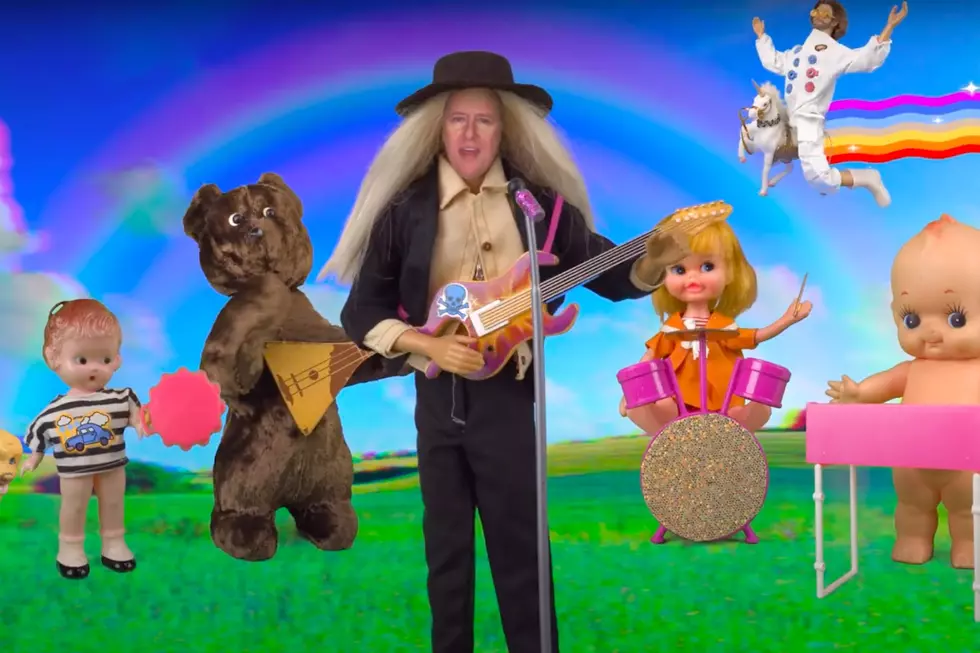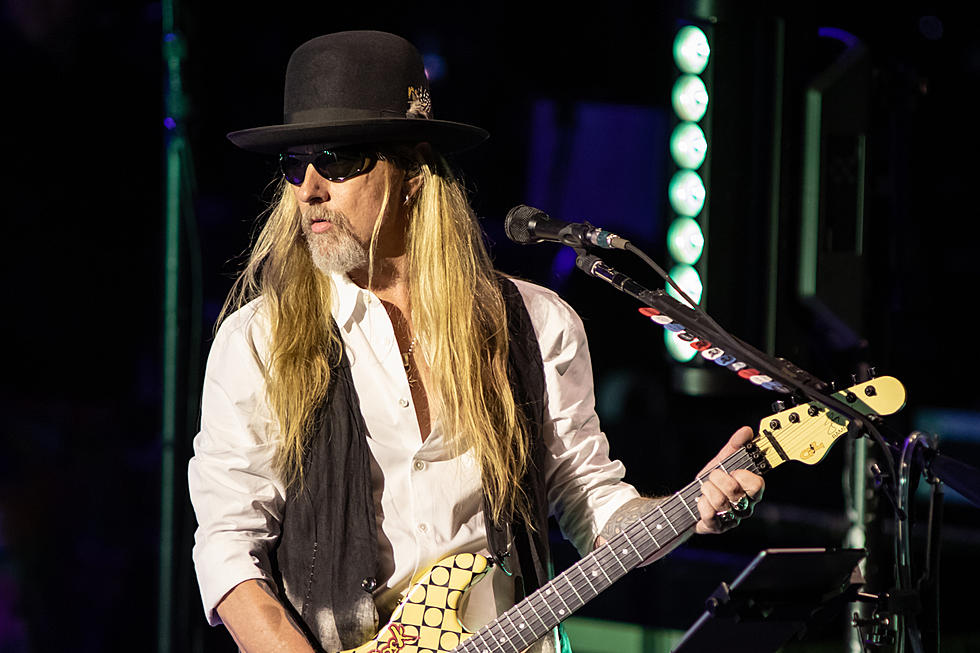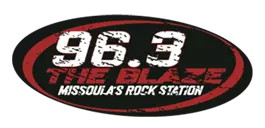
Jerry Cantrell Talks New Solo Album, Opening for Great White
“Demoing and collecting ideas is like money in the bank,” Alice in Chains guitarist Jerry Cantrell says of the songs from his new solo album, Brighten, released on Oct. 29. “There’s all sorts of great ideas that never get used or don’t get attended to, or they don’t fit the time or the record you’re working on. And the cool thing is they’re always there.”
Cantrell pulled out all the stops for Brighten, his first solo record since 2002's Degradation Trip. He coproduced the LP with film score composer and former Marilyn Manson guitarist Tyler Bates, and he enlisted an all-star cast of musicians including Guns N' Roses bassist Duff McKagan, Paul McCartney drummer Abe Laboriel Jr. and Dillinger Escape Plan vocalist Greg Puciato.
The resulting nine-song project features the melancholy vocal harmonies and multilayered guitars that became Alice in Chains hallmarks. But Brighten also exchanges dour, down-tuned alt-metal for bucolic folk tunes and swaggering country-rock, speckled with pedal steel guitar and smoky Hammond organ flourishes. In a nod to his classic rock roots, Cantrell closes the album with a haunting cover of Elton John's "Goodbye," which earned the Rocket Man's seal of approval.
Shortly after the release of Brighten, Cantrell spoke to UCR about the songwriting process, his guitar-playing philosophy and opening for glam bands during Alice in Chains' early days.
This is an album that really lends itself to repeated listens. It has so many instrumental and melodic layers.
I grew up on a lot of records like that, and I've tried to create records like that. I think a lot of our music and the music that I've been a part of making, we've had some instant, like, "hell yeah" impactful songs and records, but they're really kind of built for the long haul. And I appreciate that. I love that you get more out of 10 listens and 20 listens and 30 listens. Like, “Holy shit, is he doing that there? What's he doing over here?” I love that depth. I love layering. I like the narrative, you know? And that goes from the surface all the way to the bottom.
You were a pioneer of the Seattle sound in the ‘90s, but when I listen to this record, I get much more of a California feel. It's got some country elements; it’s got slide guitar; it's got some some sunny, upbeat melodies. Were you conscious of that dynamic while you were making this album?
When you start a record, for me, part of the fun is not knowing where you're going. You may have a handful of ideas that give you a little bit of a vibe of what it could be, just demoing up tunes like, “Okay, this is gonna be a heavy record,” or “This is gonna be a little bit more of an atmospheric, lighter record.” But you kind of come up with that in the process, and that's a nice surprise. You just kind of go where you feel like the music's taking you naturally. So it's interesting because, in this demoing process, I just demo up what's striking me and go through a writing process. And there were about nine or 10 tunes that were basically the body of this record, and then there were about five or six other songs that felt like a different record, felt a little bit more in-your-face and aggressive and doomy, and they didn't seem to fit with this. And you kind of realize that process about halfway through the demoing thing and [say], "Okay, I guess this is where we're going.” You listen to where it's taking you, and then you just try to shepherd it through and let it be a natural, in-the-moment kind of thing.
Watch the Video for Jerry Cantrell's 'Atone'
I guess that’s a good problem: having too much good material to fit on one record, rather than scrambling to find enough songs.
That's a problem I fortunately haven't had in my career, trying to come up with enough music to fill a record. And I'm thankful for that, and I credit that to a lot of hard work, and also being part of a collective that spurs that. We have done records — Jar of Flies being one example — where we didn't have a whole lot when we went in, and we just kind of made it up, and it turned out to be a really great record. But for the most part, I like going in, and you like to go in as a band or as a writer, knowing that you've got a lot of material that you already feel good about.
You’ve got an impressive cast of musicians on this album, including Duff McKagan on bass. Do you guys have a strong musical kinship because of your shared Seattle roots?
We do, and Duff's asked me on a number of occasions to join him on some of his efforts, some of his solo records. And we did a cool thing where we played a song for Jimmy Carter's birthday. He joined us on tour, when we were heading toward making [Alice in Chains'] Black Gives Way to Blue, came out on the road with us and played guitar with us. And we're good friends and longtime collaborators. I don't think he intended to do the whole record, but he came over to do a song or two, [and] I kept throwing tunes at him, and by the end of a couple of days, he'd already done three quarters of the record. [Laughs.] He's just so talented. I just admire him as a musician and as a man.
Of all the archetypal grunge bands that came out in the early ‘90s, I feel like Alice in Chains had the biggest soft spot for the ‘80s hard rock coming out of Los Angeles. You were able to inject those big riffs and showmanship into your sound.
Yeah, I mean, [there] was a lot of good music made in that decade. And being a big band and being able to command a stage and have a large audience and put on a show, those are as crucial elements as writing good songs and being a good musician. Early on, maybe a lot of our brethren didn't openly admit it, but we all listened to the same stuff and were inspired by everything, from the most underground punk to the biggest, most commercial rock and everything in between. But we just wanted to get on a stage, and we wanted to be a successful band, and we wanted to be a big band. There was [Mother] Love Bone, and then later Pearl Jam and Soundgarden and us and the [Screaming] Trees and Mudhoney and Nirvana. Four of those were all in the same office, right? So every once in a while, somebody would come to town, like Poison or Helix or whatever. I think our first gig, we were opening for Great White and Tesla. They'd call and ask if any of the bands would be interested in opening for those bands, and everybody would turn it down except us. We're like, "Is it a stage? Is it in our state or in our town? We're there. We'll play with anybody." And those were important reps, getting on big stages, no matter if you didn't really mix musically that well with the band you were playing with. We did shows or toured with everybody. We toured with Extreme. We toured with Slayer. We toured with Iggy Pop. We toured with Van Halen. Diversity is a good thing. We've always embraced that, and it's more fun, I think, when you get a variety of stuff than [when] it's just a straight metal show.
I imagine that when you're out there fighting for your life to win over an audience that isn't yours, it makes you appreciate the audience that is there solely for you even more.
When you start being able to open for bands of that size, that are playing arenas and bigger venues like festival-seating crowds and shit like that, that's a big jump. That's a big jump from a tiny, shitty club that you're used to playing. But you also have the experience of having gone through that and seeing the shift when your music starts to hit the world and people start paying attention to you. So that happened for us in the middle of Clash of the Titans, when we were opening up for Anthrax, Megadeth and Slayer on a revolving headliner tour. For the first half of that, it was like running the gauntlet. You were constantly dodging shit that was being thrown at you. People were spitting, fucking swearing at you, swinging at you, jumping up on the stage and starting fights with you. And we kind of relished that. It was kind of like us against the world. But about halfway through that was when “Man in the Box” actually caught at radio and started getting played at MTV. And it was weird because you could almost immediately feel that shift.
Listen to Jerry Cantrell's 'Black Hearts and Evil Done'
Gibson recently unveiled your signature “Wino” Les Paul. When you were developing your chops as a guitar player and songwriter, what was your philosophy and approach to guitar?
It's a lot of listening, a lot of time spent playing. One thing I did a lot of was when I got out on my own, away from home or whatever, about 18, 19, was live shows. And I soaked up a lot from that, and that kind of goes back to what we were talking about. It's about a lot of different levels of proficiency, rather than just being a great musician. And I think you go through a process of finding yourself. I was always into bands that had riffs, and I always dug bands that had really strong writers, and I guess I just kind of naturally gravitated toward that and found myself somewhere along that path. Riffs, songs, melody, harmony. That’s the four keys right there.
Some guitarists just treat a song as a vehicle to get to the solo so they can show off. I don't think you’ve ever had that inclination.
Well, I'm not that good where I can just improvise for a 15-minute solo, so I have to rely on other strengths. My stuff has always been really tailored to the song, even some of the earlier stuff where there's... always a space for the guitar solo. And I love that, believe me, but even those solos, I always think of it [as] it's got to add something to the song, and I always think of it as another section. And it's got to speak. It's got to sing like a vocal or horn line. Something that's unique and elevates the song, but it's still something memorable and melodic. And especially [outside of the] U.S., like in South America or a lot of the European countries, it's a trip to not only have people sing the lyrics to your songs back, but they'll sing your solos back to you. That puts a chill up your spine.
You’ve got some 2022 tour dates lined up. Do you know who's going to be playing in the band yet?
I think there's a chunk of the guys that I did the record with that are gonna take the trip with me. A lot of them have their own stuff going on, their own big bands and their own projects to do, but it's a little far out to say who's actually gonna be there. But I'll go with the flow. I've been really lucky to be able to have a cool, new group of musicians rally and go out and tour every time I've done it, so I'm not worried about it this time.
Top 30 Grunge Albums
More From 96.3 The Blaze










